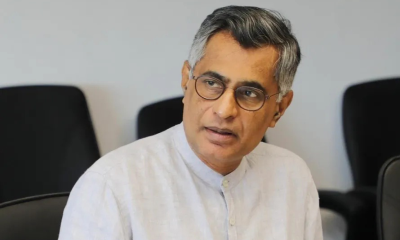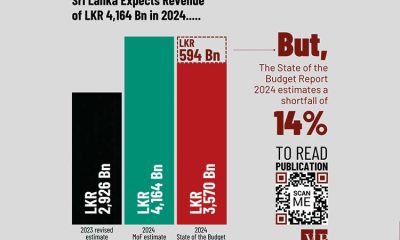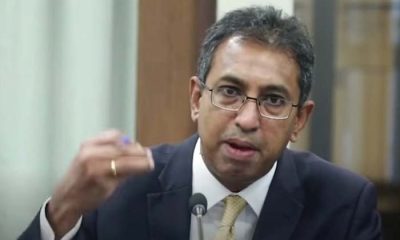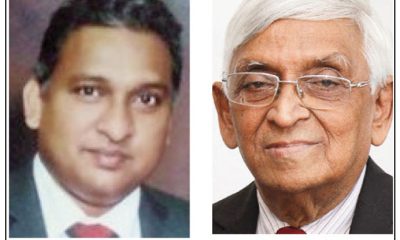Business
Authorized mobile importers urge SL govt. to reconsider VAT hike

A group of authorized mobile phone importers in Sri Lanka express deep concern over the Sri Lankan government’s decision to remove mobile phones from the Value Added Tax (VAT) exemptions list, coupled with a simultaneous increase in VAT from 15% to 18%, effective January 1st, 2024. This dual impact, wherein devices now not only face a sudden VAT imposition, but also at a significant rate of 18%, pose substantial challenges for the industry and the country. The importers urgently call for a critical reassessment by the authorities in light of these compounded challenges.
A press release said in this regard: ‘The timing of the VAT hike is particularly challenging for authorized mobile phone importers in the country. These companies have collaborated with the Telecommunications Regulatory Commission of Sri Lanka (TRCSL) to find viable solutions to the challenges of parallel imports. Parallel imports, or grey market goods, involve the import and sale of branded products in a market without the trademark owner’s consent. This issue has already caused a tax revenue loss of LKR 3.1 billion (USD 9.4 million) and a Forex outflow of LKR 31.6 billion (USD 96 million) via illegal channels in Sri Lanka.
‘With the sudden VAT increase, this loss is estimated to rise to 11.9 billion LKR, marking a substantial increase in tax revenue loss from illegal imports. Additionally, there is a projected further tax revenue loss to the government, amounting to a LKR 2.5 billion decline from legitimate imports. This decline is anticipated due to increased parallel import products driven by the rising prices of genuine products.
‘Moreover, the ramifications extend beyond the economic landscape. Over 10,000 direct job opportunities are now at risk, leaving families dependent on the industry—more than 15,000, including those involved in logistics, printing, branding, advertising, etc.—facing uncertainty. The policy change also jeopardizes direct Forex investment for market development by principals (ATL/BTL), putting this crucial financial support at risk. Furthermore, the spectre of a national security threat looms as parallel imports introduces unknown devices to the country, creating challenges in tracking these products.
‘Authorized mobile importers emphasize the unfortunate timing of removing cellular and electronic devices from the VAT-exempted list and the hike in VAT given the ongoing efforts by legal importers to find solutions for the persistent Parallel Imports (PI) issue.
‘Accordingly, the industry had put forward practical suggestions and is actively engaged in collaboration with the TRCSL to explore viable solutions which include proposing an option for registering already in-use PI devices at a nominal fee, introducing a Tourist SIM for the duration of the incoming visitor’s VISA period, and implementing whitelisting of non-registered IMEI from mobile networks. These initiatives aim to holistically address the challenges posed by parallel imports, foster regulatory compliance, and contribute to the development of effective policies that strike a balance between industry interests and regulatory requirements. However, the sudden imposition of VAT, and at an alarmingly high percentage while the industry was working with the TRCSL, is deeply concerning. Similar situations have been observed in countries like Pakistan and Nepal.
‘The absence of effective measures to restrict parallel imports before imposing taxes impacts legitimate imports and results in a substantial loss in government revenue. Authorized mobile importers stress the critical necessity for the government of Sri Lanka to prioritize and implement a viable solution for the parallel import problem before imposing additional taxes on the industry. This approach is urgent and essential to safeguard the industry’s interests and the government’s fiscal well-being.
‘On December 1st 2023, a meeting was convened involving the TRCSL, leading mobile brands and authorized importers. The assembly of mobile importers present included, Thushara Ratnaweera and Chaminda Silva representing Samsung, alongside Rajeev Gooneratne and Charles Wijesuriya from Gnext, Prasanna Weerakoon of JKOA, Chathura Jayawardena and Sha Bulathsinhala from Abans, and Gurubaran and Sanketh Gihan representing Vivo.’
Business
President and Indian PM jointly launch and inaugurate three development projects
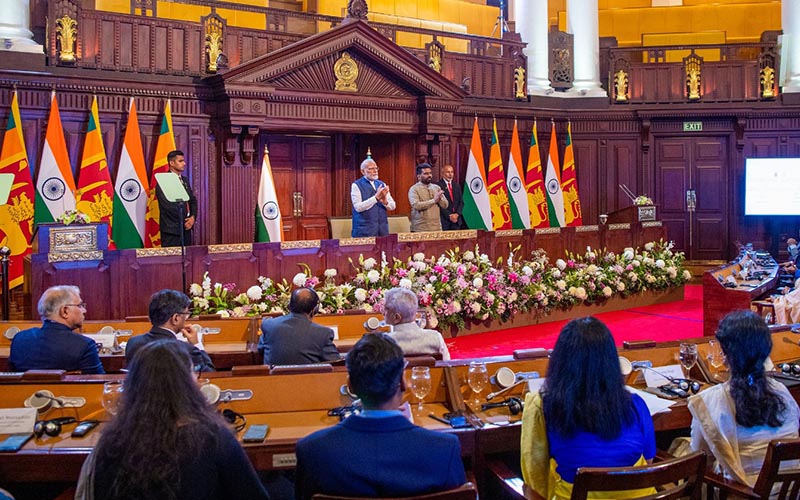
The inauguration and commencement of three development projects implemented in the country with the assistance of the Indian Government took place on Saturday (05)
These projects include the commencement of construction of the Sampur Solar Power Plant, which will add 50 megawatts to the national grid, the inauguration of the Temperature and Humidity Controlled Agro Cold Storage complex in Dambulla and the installation of solar panels on 5,000 religious sites. President Anura Kumara Disanayake and Prime Minister Shri Narendra Modi jointly inaugurated and launched these projects via virtual technology following their official meeting at the Presidential Secretariat on Saturday morning.
Prime Minister Modi’s visit to Sri Lanka reaffirms the concept of “Friendship of Centuries, Commitment to a Prosperous Future,” strengthening the deep-rooted ties between the two nations.
The Sampur Solar Power Plant is part of the Eastern Renewable Energy Zone, which is being established under Sri Lanka’s Long-Term Generation Expansion Plan (LTGEP). It is being developed by Trincomalee Power Company, a joint venture between India’s NTPC Limited and the Ceylon Electricity Board (CEB).
The project is planned in two phases, with the second phase scheduled to commence in 2027. A 500-acre land area has been allocated for this initiative, under the first phase it will contribute 50 megawatts of electricity to the national grid. The project will incorporate state-of-the-art N-type TOPCon solar cell technology, enhancing energy security and promoting a shift from fossil fuel dependency to renewable energy sources. Consequently, the Sampur Solar Power Project is expected to reduce annual carbon dioxide emissions by approximately 200,000 tonnes.
The Dambulla Agricultural Storage Complex (Cold Storage Facility), with a capacity of 5,000 metric tons and equipped with temperature and humidity control, was inaugurated today with the objective of reducing post-harvest losses by approximately 40%, stabilizing fluctuations in agricultural product prices, ensuring the supply of high-quality food to consumers and enhancing agricultural sustainability.
To facilitate research on advanced storage methods for different crops, the facility includes six storage chambers, each designed to simulate various climatic conditions. This is the first facility of its kind in Sri Lanka, built at a total cost of LKR 524 million, with LKR 300 million provided as a grant by the Government of India and LKR 224 million contributed by the Government of Sri Lanka.
The Government of India has invested USD 17 million on the project to install solar panels on 5,000 religious sites and places of worship representing all major religions in all 25 districts. The nitiative, is being implemented jointly by the Ceylon Electricity Board, the Sri Lanka Sustainable Energy Authority and Lanka Electricity Company (Pvt) Ltd.
Under this project, 5,000 solar panel systems with a capacity of 5 kW each will be installed on the rooftops of Buddhist, Hindu, Muslim, Catholic and Christian places of worship. This is expected to add 25 megawatts of solar power capacity to the national electricity grid. The initiative underscores the government’s commitment to a cost-effective, sustainable and reliable energy system.
[PMD]
Business
Will the U.S. 44% Tariff on Sri Lankan Exports Harm Key Industries? Examining the Impact and Sri Lanka’s Path Forward – Ambassador Kananathan
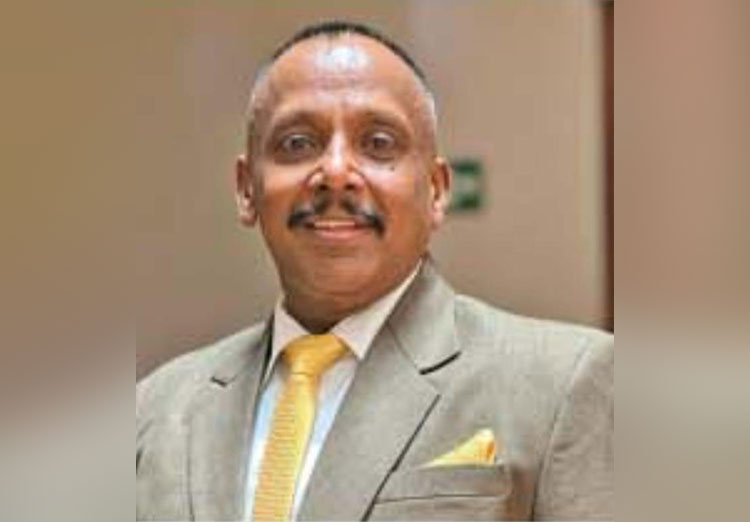
Sri Lanka’s export sector is grappling with a significant challenge following the United States’ decision to impose a 44% reciprocal tariff on Sri Lankan goods. This steep tariff threatens the country’s trade with the U.S., particularly in the apparel industry, which serves as a cornerstone of Sri Lanka’s economy.
Tea and Other Exports Also Under Threat
The repercussions extend beyond apparel, with tea exports at risk due to increased costs that may reduce Sri Lanka’s competitiveness against major producers like India, Kenya, and China. Other key export segments, including spices, seafood, and coconut-based products, are also likely to face price pressures, making it difficult for Sri Lankan exporters to sustain their foothold in the U.S. market.
Given that the United States is a major buyer of Sri Lankan goods, this move raises concerns about trade competitiveness, long-term sustainability, and economic stability. The question now is: how will this tariff impact Sri Lanka’s export-driven industries, particularly apparel, and what strategies can be employed to counteract the effects?
A Major Blow to the Apparel Sector – Sri Lanka’s Leading Foreign Exchange Earner
Ambassador Kana Kananathan, former High Commissioner to Kenya, has warned that this development could severely impact the apparel sector, which accounts for nearly 40% of Sri Lanka’s total exports. With U.S. buyers contributing approximately $3.3 billion annually, the apparel trade constitutes a crucial revenue stream for the nation.
A 44% tariff would substantially raise the cost of Sri Lankan apparel, making it less competitive compared to manufacturers in Bangladesh, Vietnam, Cambodia, and India. This could lead to a significant drop in orders from American buyers, posing a serious threat to the industry’s growth and employment rates.
Navigating the Challenge: Government and Industry Response
While immediate government intervention is necessary to mitigate these effects, businesses must also take proactive measures. Innovation, market diversification, and strengthening supply chain resilience will be essential strategies for overcoming these trade barriers. With the right approach, Sri Lanka can navigate this challenge and position itself more robustly in the global marketplace.
Ambassador Kananathan also suggested that exporters explore the ‘1/3 Cost-Sharing Model’ as a potential solution. Under this approach:
=Sri Lankan Manufacturers accept a partial reduction in profit margins, ensuring their products remain competitively priced.
=U.S. Retailers and Brands agree to absorb a portion of the tariff, recognizing the value of maintaining a reliable Sri Lankan supply chain.
=Raw Material Suppliers provide pricing flexibility, such as offering discounts or extending credit terms, to help offset cost increases.
By adopting these strategic adjustments, Sri Lanka’s export industry can mitigate the immediate impact of the tariff while laying the foundation for long-term trade resilience.
( Ambassador Kananathan was Sri Lanka”s former High Commissioner to Kenya and with concurrent accreditation to 23 African countries as well as Sri Lanka’s Permanent representative to UNEP and UN Habitat)
Business
Three Sinha Industries wins award for excellence at SLIA

Three Sinha Industries Pvt. Ltd. has been recognised with the Award of Excellence at the Sri Lanka Institute of Architects (SLIA) Annual Product Awards, held recently in Colombo. The award was presented for the company’s high-quality, fire-resistant doors, which are made using locally sourced materials and designed to meet the highest safety standards. The award ceremony was held recently in Colombo, and Managing Director Manjula Ariyakumara accepted the award on behalf of the company, marking yet another milestone in Three Sinha’s journey of excellence.
From its establishment as a small-scale business, Three Sinha has grown into a trusted name in Sri Lanka’s construction industry. The company has built a strong reputation for its commitment to quality, innovation, and reliability, earning both local and international recognition. Over the years, it has received several certifications for maintaining top-tier quality standards. Three Sinha has also received many other local and international awards.
Three Sinha Industries offers a diverse range of products and services, including roller doors, shutters, and fire-resistant doors that provide enhanced safety and durability. The company also specialises in aluminum fabrications, sensor doors, and automatic barriers, ensuring a comprehensive suite of solutions for the construction sector. Embracing sustainability, Three Sinha has expanded into green energy solutions, offering three types of solar PV electricity systems: on-grid, off-grid, and hybrid. Additionally, its subsidiary, IKLO Industries, focuses on pre-fabricated and pre-engineered steel buildings, incorporating advanced technology to meet modern construction demands. IKLO has also ventured into the agricultural sector by introducing tractor trailers tailored for farming needs. Moreover, the company manufactures high-quality diesel tanks that meet the standards of both the Ceylon Petroleum Corporation and the Indian Oil Corporation.
-

 Business2 days ago
Business2 days agoDaraz Sri Lanka ushers in the New Year with 4.4 Avurudu Wasi Pro Max – Sri Lanka’s biggest online Avurudu sale
-

 News7 days ago
News7 days agoBid to include genocide allegation against Sri Lanka in Canada’s school curriculum thwarted
-

 Business3 days ago
Business3 days agoStrengthening SDG integration into provincial planning and development process
-

 Features21 hours ago
Features21 hours agoStarlink in the Global South
-

 Business2 days ago
Business2 days agoNew SL Sovereign Bonds win foreign investor confidence
-

 Sports4 days ago
Sports4 days agoTo play or not to play is Richmond’s decision
-

 Features21 hours ago
Features21 hours agoModi’s Sri Lanka Sojourn
-

 Latest News6 days ago
Latest News6 days agoIPL 2025: Rookies Ashwani and Rickelton lead Mumbai Indians to first win


